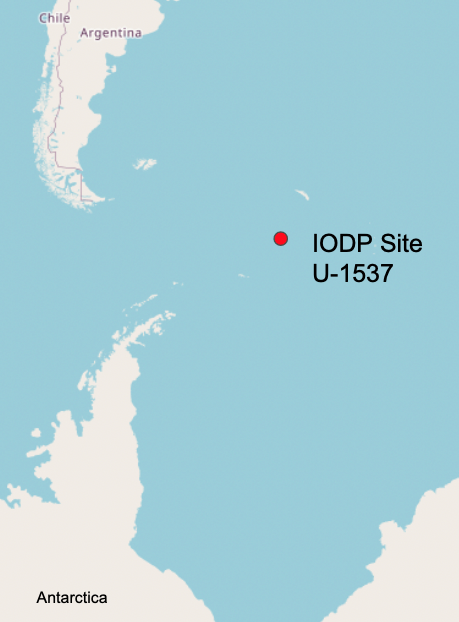 Jonathan Warnock and colleagues published a recent paper describing a geologically recent period of ice loss in West Antarctica. The paper, titled "Latitudinal Variance in the Drivers and Pacing of Warmth During Mid-Pleistocene MIS 31 in the Antarctic Zone of the Southern Ocean," sheds light on a time period in Earth's history with significant ice loss in Antarctica.
Jonathan Warnock and colleagues published a recent paper describing a geologically recent period of ice loss in West Antarctica. The paper, titled "Latitudinal Variance in the Drivers and Pacing of Warmth During Mid-Pleistocene MIS 31 in the Antarctic Zone of the Southern Ocean," sheds light on a time period in Earth's history with significant ice loss in Antarctica.
The event, known as Marine Isotope Stage (MIS) 31, is a time period around one million years ago when Earth’s orbit created notably warm conditions. Using fossil diatoms (algae that make their cell walls out of glass) as well as sediment data, Warnock and colleagues demonstrated a period of significant warming and reduced sea-ice over MIS 31. In comparing to other records from farther north and south, it was revealed that peak warming did not occur simultaneously across the Southern Ocean.
In addition, two distinct processes driving warmth were distinguished across the Southern Ocean: temperature gradients over Earth’s surface in the north versus the effects of direct local warming in Antarctica in the south.
The paper highlights the seriousness of recent increases in water temperatures around Antarctica.
Full Reference
Warnock, Jonathan P., Brendan T. Reilly, Maureen E. Raymo, Michael E. Weber, Victoria Peck, Trevor Williams, Linda Armbrecht et al. "Latitudinal variance in the drivers and pacing of warmth during mid‐Pleistocene MIS 31 in the Antarctic Zone of the Southern Ocean." Paleoceanography and Paleoclimatology 37, no. 8 (2022): e2021PA004394.